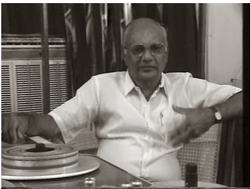
ఎన్నో కట్టుబాట్లు, ఎన్నో సంప్రదాయాలు, ఎన్నో ఆంక్షల నడుమ ఒక స్త్రీ ఏ రంగంలోనైనా అడుగుపెతుందంటే అది ఒక అంటరానితనం కన్నా ఎక్కువగా భావించే ఆ రోజులలో తన అభిలాష మేరకు నృత్యం నేర్చుకొన్న ఒక అమ్మాయి 1951 లో “గుణసాగరి” అనే ఒక చిత్రంతో సినీరంగ ప్రవేశం చేసిన ఒక నటి కుటుంబాన్ని వాళ్ళ బంధువులు దాదాపుగా వెలివేసినంత పని చేశారు. ఆ కుటుంబం పిల్లారుశెట్టి భక్తవత్సల నాయుడు కుటుంబం. ఆ నటి పేరు రాజసులోచన. అందం, అభినయం, నటన, నాట్యం ఇన్నింటికి మేలికలయిక రాజసులోచన. ఆమె అసలు పేరు పిల్లారుశెట్టి భక్తవత్సల నాయుడు రాజీవలోచన. పాఠశాలలో చేరినప్పుడు ఆమె పేరు రాజసులోచన అని వ్రాయడంతో అదే పేరుతో ఆవిడ కొనసాగింది. ఆమె జీవితం అందరిలాగే ఎన్నో ఎత్తుపల్లాలతో సాగింది. ఆమె నటజీవితం 1951 నుండి 1994 వరకు కొనసాగింది.
తెలుగు, తమిళం, కన్నడం, మలయాళం మరియు హిందీ ఇలా ఐదు భాషలలో సుమారు 300 కి పైగా సినిమాలు నటించారు. ఆవిడ నాట్యంలో పూర్తిగా అనుభవం సంపాదించిన తరువాత చిత్రరంగ ప్రవేశం చేశారు, కథానాయిక స్థాయికి ఎదిగారు. నర్తకిగా సినిమారంగ ప్రవేశం చేసి సుదీర్ఘకాలం నర్తకిగా కొనసాగిన మిగతా నటీమణుల లాగా కాకుండా రాజసులోచన ఎక్కువ కాలం నర్తకిగా కొనసాగలేదు. నర్తకిగా, కథానాయికగా, గుణచిత్ర నటిగా నటనా జీవితంలో అనేక రకమైన వైవిధ్యభరిత పాత్రలతో ప్రేక్షకులను అలరించారు. సినిమాలలో ఎన్ని వైవిధ్యభరితమైన పాత్రలు పోషించారో, నాటకరంగంలో కూడా అన్నే వైవిధ్యభరితమైన ప్రయోగాలు కూడా చేశారని చెప్పవచ్చు. ఆమె వ్యక్తిగత జీవితంలో రెండు సార్లు వివాహాలు, రెండు సార్లు వివాదాలు. ఆవిడ జీవితం మెరుపుల, మలుపుల ప్రయాణం.
తెలుగులో బాటుగా తమిళ, కన్నడ, మలయాళం, హిందీ భాషలలో కూడా నటించడం ఆ రోజులలో అతి తక్కువ మంది తారలకు మాత్రమే దక్కిన అవకాశం. ఆయా భాషలలోని ప్రముఖ కథానాయకులతో నటించడం, అన్నింటిని మించి తన పాత్రలకు తానే డబ్బింగ్ చెప్పుకోవడం విశేషం అనే చెప్పాలి. తీరికలేని సినీ జీవితంలో కొనసాగుతూ కూడా రంగస్థలం నాట్య ప్రదర్శనలను క్రమం తప్పకుండా కొనసాగించిన అతికొద్ది మంది సీనియర్ కళాకారిణిలలో ఒకరు రాజసులోచన. ఒకవైపు సినిమాలో కథానాయికగా నటిస్తూనే మరోవైపు వివిధ రకాల నాట్య కళలని అభ్యసించడం, వాటిద్వారా రంగస్థలంలో నాట్య ప్రదర్శన ద్వారా వివిధ సంస్థలకు విరాళాల సేకరణలో సహాయం చేయడం లాంటివి ఎన్నో చేశారు.
ఈమె కథానాయకుడి ప్రక్కన కథానాయికగా నటించారు, కథానాయికల ప్రక్కన కథానాయికగా (అంటే రెండవ కథానాయికగా) నటించారు. ఎన్టీఆర్ తో “సొంత ఊరు”, “పెంకి పెళ్ళాం”, “వాల్మీకి”, “రాజమకుటం” లాంటి సినిమాలలోనూ, అక్కినేని నాగేశ్వరరావు తో “ఇద్దరు మిత్రులు”, “శాంతినివాసం” లాంటి సినిమాలలోనూ, కాంతారావుతో “గుండెలు తీసిన మొనగాడు”, “ఖైదీ కన్నయ్య”, జగ్గయ్య తో “రేపు నీదే”, “భాగ్యదేవత” లాంటి చిత్రాలలో నటించారు. ఒకవైపు కథానాయికగా ప్రధాన పాత్రలలో నటిస్తున్న రోజులలోనే “జయభేరి”, “తోడికోడళ్ళు” లాంటి సినిమాలలో వేశ్య పాత్రలు, “మాంగళ్యబలం” లాంటి చిత్రాలలో హాస్య పాత్రలు, పాండవ వనవాసం లాంటి చిత్రాలలో అతిథి పాత్రలు కూడా పోషించారు. నృత్యాలలో శాస్త్రీయ నృత్యాలు చేశారు, పాశ్చాత్య నృత్యాలు కూడా చేశారు. “మోసగాళ్లకు మోసగాడు” లాంటి చిత్రాలలో మితిమీరిన నృత్య సన్నివేశాలలోనూ నటించారు.
రాజసులోచన తమిళంలో ఎంజీఆర్, శివాజీ గణేషన్ లతో, మలయాళం లో ప్రేమ్ నజీర్ లతో, కన్నడంలో రాజ్ కుమార్ మొదలగు వారందరి ప్రక్కన నటించారు. ఆవిడ హిందీలో అశోక్ కుమార్ తో కలిసి నటించిన “సితారోంసే”, “ఆగే” మంచి పేరు తెచ్చి పెడితే “నయా ఆద్మీ”, “చోరీ చోరీ” లాంటి సినిమాలు కూడా రాజసులోచనను ఉత్తర భారతదేశంలో చక్కటి నటిగా పరిచయం చేశాయి. అలనాటి తారలతో ఇంత విస్తృతిలో నటించిన కథానాయికలను వ్రేళ్ళమీద లెక్కపెట్టవచ్చు. వాళ్ళందరిలోనూ విలక్షణమైన తార రాజసులోచన. ఆ దశాబ్దాలలో తెలుగులో అనేక మధుర గీతాలు రాజసులోచన మీద చిత్రీకరించబడ్డాయి. రాజమకుటంలో “సడిచేయకోగాలి సడిచేయబోకే”, శాంతినివాసంలో “రావే రాధా రాణి నీవే”, పెంకి పెళ్ళాం చిత్రంలో “పడుచుదనం రైలు బండి కదిలిపోతున్నది”, ఖైదీ కన్నయ్య లో “తేనెల మాటలతో” వెలుగునీడలులో “పాడవోయి భారతీయుడా”, పాండవవనవాసం లో “ఉరుకుల పరుగుల దొర” ఇలా ఎన్నో ఆణిముత్యాల లాంటి పాటలు ఉన్నాయి.
జీవిత విశేషాలు.
జన్మనామం : పిల్లారుశెట్టి భక్తవత్సలం నాయుడు రాజీవలోచన
ఇతర పేర్లు : రాజసులోచన
జన్మదినం : 15 ఆగస్టు 1936
స్వస్థలం : విజయవాడ (కృష్ణాజిల్లా),ఆంధ్రప్రదేశ్.
తండ్రి : పిల్లారుశెట్టి భక్తవత్సలం నాయుడు
తల్లి : దేవిక,
మొదటి భర్త : పరమశివం
రెండవ భర్త : చిత్తజల్లు శ్రీనివాసరావు
పిల్లలు : అబ్బాయి శ్యాంసుందర్, ఇద్దరు అమ్మాయిలు శ్రీ మరియు దేవి.
నివాసము : చెన్నై
మరణ కారణం : మూత్రపిండాల సంబంధిత వ్యాధి..
మరణం : 5 మార్చి 2013 మద్రాసు , తమిళనాడు.
నేపథ్యం…
రాజ సులోచన ఆంధ్రప్రదేశ్ లోని కృష్ణా జిల్లా విజయవాడలో మేనమామ ఇంట్లో 15 ఆగస్టు 1936 లో జన్మించారు. నాన్న పేరు భక్తవత్సలం నాయుడు, అమ్మ పేరు దేవికి అమ్మాల్. భక్తవత్సలం నాయుడు మద్రాసులో రైల్వే జనరల్ మేనేజర్ కు అసిస్టెంట్ గా ఉండేవారు. అందువలన రాజసులోచన బాల్యం మరియు విద్యాభ్యాసం అంతా మద్రాసులోనే గడిచింది. ఆమె అసలు పేరు “పిల్లారుశెట్టి భక్తవత్సలం నాయుడు రాజీవలోచన”. అయితే మద్రాసులో పాఠశాలలో చేరినప్పుడు రాజసులోచన అని వ్రాయడంతో అదే ఆమె పేరుగా స్థిరపడిపోయింది. ఆమెకు ఒక్కతే కూతురు అవ్వడంతో తల్లిదండ్రులు ఆమెను చాలా గారాబంగా చూసుకునేవారు. ఆమె మద్రాసు ట్రిప్లికేన్ లో సి.యస్.యమ్ పాఠశాలలో ఐదవ తరగతి వరకు చదువుకున్నారు.
ఆ తరువాత నేషనల్ గర్ల్స్ పాఠశాలలో ఆరవ తరగతి చదవడానికి చేరింది. ఆమెను బడిలో చదివించడం తప్ప ఆమెకు నాట్యం, సంగీతం లాంటి లలిత కళలలో శిక్షణ ఇప్పిద్దామని తల్లిదండ్రులు ఏనాడూ అనుకోలేదు. కానీ ఆమె దృష్టి లలిత కళలవైపు మరలడానికి కారణం వాళ్ళ మేనమామ. ఆయన “సుగుణ విలాస సభ” అనే సంస్థ తరపున నాటకాలు నృత్య ప్రదర్శనలు ఏర్పాటు చేస్తూ ఉండేవారు. చిన్నప్పటి నుండి వాటినే చూస్తూ పెరిగిన రాజసులోచనను లలిత కళలు బాగా ఆకర్షించేవి. ఆమె ఎలిమెంటరీ పాఠశాలలో ఉండగానే రెండో ప్రపంచ యుద్ధ ఛాయలు మద్రాసు నగరాన్ని చుట్టుముట్టాయి. దాంతో చాలామంది మద్రాసు పట్టణాన్ని వదిలి వెళ్ళిపోయారు. కానీ రాజసులోచన తండ్రి మాత్రం ధైర్యంగా అక్కడే ఉండిపోయారు. ఆ ధైర్యమే ఆ తరువాత కాలంలో రాజసులోచనకు అలవాటయ్యింది.
నృత్యం పై అభిలాష…
ఆమె నాలుగో తరగతి చదువుతుండగానే జెమిని వారి “మంగమ్మ శబటం” (1943) విడుదలైంది. అందులో వసుంధర దేవి (నటి వైజయంతి మాల) తల్లి నటన అప్పట్లో పెద్ద సంచలనం. ఎలిమెంటరీ పాఠశాలలో రాజసులోచన టీచర్ “నవమణి” పాఠశాల వార్షికోత్సవంలో “మంగమ్మ శబటం” లోని పాటకు ఎవరైనా డాన్స్ చేస్తారా అని అడిగారు. అది విన్న రాజసులోచన ముందుకు వచ్చింది. ఆ చిన్నపిల్లకి నాట్యంలో శిక్షణ లేకపోయినా మేనమామ ఏర్పాటుచేసిన నాటకాలు చూసిన ఆమె అద్భుతంగా నృత్యం చేసి పాఠశాల ఉపాధ్యాయనీ, ఉపాధ్యాయుల ప్రశంసలు పొందింది.
ఆ తరువాత నృత్యం నేర్పించమని తన ఇంట్లో అభ్యర్థించింది. కానీ దానికి తల్లిదండ్రులు ఒప్పుకోకుండా సంగీతం నేర్పించడానికి అంగీకరించి వాళ్ళ ఇంటి దగ్గరే ఉన్న పంకజం అనే సంగీతం టీచర్ ను రాజసులోచనకు సంగీతం నేర్పించడానికి ఏర్పాటు చేశారు. కొన్ని రోజుల తరువాత సంగీతం నేర్పించడానికి పంకజంకు రాజసులోచన ఇంట్లోనే ఒక గది ఏర్పాటు చేశారు. రెండు మూడు నెలలు గడిచిపోయాయి. అయినా సరే రాజసులోచనకు ప్రాథమిక స్వరాలు కూడా పట్టుబడలేదు. ఎందుకంటే ఆమె మనసు సంగీతం మీద లేదు. నాట్యం మీదనే ఉన్నది. కనుక ఆమెకు జన్మలో కూడా సంగీతం రాదు, సంగీతం బదులు ఆమె కోరింది నేర్పించాలని సలహా ఇచ్చారు “పంకజం”.
వయోలిన్ శిక్షణ…
పంకజం టీచర్ సలహాతో వయోలిన్ పాఠాలకు టీచర్ ను కూడా ఏర్పాటు చేశారు. ఆ సమయంలోనే రాజసులోచనను 1945లో ఎలిమెంటరీ పాఠశాల నుండి హైస్కూల్ చదువుకోసం నేషనల్ గర్ల్స్ ఉన్నత పాఠశాలలో చేర్పించారు. ఇంటి వద్ద వయోలిన్ పాఠాలు నేర్పిస్తున్నా కూడా రాజసులోచన దృష్టి మాత్రం కేవలం నృత్యం నేర్చుకోవడం మీదనే ఉంది. ఈ విషయాన్ని పంకజం టీచర్ కు రాజసులోచన తెలియజేసింది. ఆ పాప బాధ అర్థం చేసుకున్న పంకజం తన స్నేహితురాలు లలిత టీచర్ (సరస్వతి గాన నిలయం) నృత్య శిక్షణ కేంద్రం నిర్వాహకురాలు కు చెప్పి రాజసులోచన అనే ఏడో తరగతి పాపను సరస్వతి గాన నిలయంలో భరతనాట్యం పాఠాలలో చేర్పించింది. సరస్వతీ గాన నిలయంలో చేరిన కొన్ని రోజులకే టీచర్ కు రాజసులోచన ప్రియ శిష్యురాలు అయ్యింది. వాళ్ళ నాన్నకి ఈ విషయం తెలియదు. రాజసులోచన అర్ధరాత్రి లేచి సాధన చేసేది. కొన్నాళ్లకు విషయం నాన్నకు తెలిసింది. కానీ ఆయన తన కూతురు పట్టుదలను అర్థం చేసుకుని ఒప్పుకున్నారు. కాకపోతే వయోలిన్ కూడా నేర్చుకోవాలి, పాఠశాల చదువులో వెనుక పడకూడదనే షరత్తులు పెట్టారు. అలా ఆ రోజు మొదలుకొని పన్నెండేళ్ల రాజసులోచన జీవితం చరమాంకం వరకు ప్రతీ రోజు తనకు తీరిక లేకుండా అయిపోయింది.
అరంగేట్రం…
రాజసులోచనకు ఉదయాన్నే రోజువారీ పాఠాలు, ట్యూషన్, పగలంతా పాఠశాల, సాయంత్రం వయోలిన్, వారానికి మూడుసార్లు నృత్యం. అయినా కూడా ఆ చిన్నపిల్లకు అవేవీ విసుగనిపించలేదు. అందులో కొంత తన ఆసక్తి అయితే, మిగతా సగం తన ఆసక్తిని కొనసాగించడానికి నాన్న పెట్టిన షరతులకు లోబడి వయోలిన్ నేర్చుకోవడం. సరస్వతీ గాన నిలయంలో భరతనాట్యం నేర్చుకుంటున్నప్పుడు కేవలం పాఠాలు చెప్పి వదిలేయడమే కాకుండా తమ నాట్య పాఠశాల పిల్లలతో తమ తమ స్థాయిని బట్టి వివిధ ప్రదర్శనలు ఇస్తూ ఉండేవారు. ఆ విధంగా అరంగేట్రం చేయడానికి ముందే ఆండాళ్ కళ్యాణం, శివలీల, కోరవంజి లాంటి నృత్య నాటకాలలో నర్తించారు రాజసులోచన. ఆ రెండేళ్లలో నృత్య పాఠశాల వాళ్ళు పెట్టిన పరీక్షలలో ఆమె డిప్లమో కూడా అందుకున్నారు. ఎనిమిదో తరగతి చదువుతున్న సమయంలోనే అమ్మానాన్నలు ఆమెను అరంగేట్రం చేయించారు. అప్పటి మద్రాసు హైకోర్టు ప్రధాన న్యాయమూర్తి పి.యల్.వెంకట్రామయ్య ముఖ్య అతిథిగా హాజరయ్యారు.
పిల్లలకు నృత్య శిక్షణ ఇస్తూ..
ఆరంగేట్రం పూర్తయిన తరువాత వయసొచ్చిన ఆడపిల్లవు బడి వద్దు, నృత్యం వద్దు అని అమ్మ నాన్నలు రెండింటిని మాన్పించారు. అంత శ్రద్ధతో, ఆసక్తితో నేర్చుకున్న భరతనాట్య అనుభవం వృథా అయిపోకూడదు అని అమ్మానాన్నలను ఒప్పించి తన పద్నాలుగు సంవత్సరాల వయస్సులోనే రాజసులోచన నాట్యం నేర్పించే టీచర్ గా అవతారం ఎత్తారు. నృత్యం నేర్చుకోవడానికి పిల్లలు ఆమె ఇంటికి వచ్చేవారు. కొంతమంది ధనవంతుల పిల్లలకైతే వాళ్ళ ఇంటికి వెళ్లి నృత్యం నేర్పాల్సి వచ్చేది. ఆ విధంగా తన పదహారు సంవత్సరాల వయస్సులో రాజసులోచన ఆర్మినియన్ వీధిలో ఒక ధనవంతుల ఇంటికి ప్రత్యేకంగా భరతనాట్య శిక్షణ ఇవ్వడానికి వెళ్లేవారు. ఒకవైపు నృత్యంలో పాఠాలు చెబుతూనే మరోవైపు రాజగోపాల్ దగ్గర పూర్వ నృత్యం (ఓరియంటల్ డాన్స్) కూడా నేర్చుకునేవారు. తనతో పాటుగా సరస్వతీ గాన నిలయంలో భరతనాట్యం నేర్చుకున్న “తాంబరం లలిత” అనే అమ్మాయి సొంతంగా నాట్య బృందాన్ని ఏర్పాటు చేసుకొని నాట్య ప్రదర్శనలు ఇవ్వడం ప్రారంభించింది. ఆ ప్రదర్శనలో పాల్గొనమని రాజసులోచనను ఆహ్వానించింది. ఆ ప్రదర్శనలో పాల్గొన్న మరో గురువు రామ్మూర్తి అనే వ్యక్తికి రాజసులోచన చేసిన నృత్యం బాగా ఆకర్షించింది.
సినీ రంగ ప్రవేశం…
నృత్య రామ్మూర్తికి హెచ్.ఎల్.ఎన్ సిన్హా తో పరిచయం ఉంది. అదే రోజుల్లో ప్రముఖ కన్నడ నటుడు గుబ్బి వీరన్న ఏ.వీ.ఎం. సంస్థతో కలిసి “గుణసాగరి” అనే సినిమాను తమిళ, కన్నడ భాషలలలో ఒకేసారి నిర్మించడానికి సన్నాహాలు చేస్తున్నారు. తమిళ వర్షన్ పేరు “సత్య సోధనై”. దానికి దర్శకుడు హెచ్.ఎల్.ఎన్ సిన్హా ఇందులో ప్రధాన నాయక పండరీబాయి. గుణసాగరిలో పండరీబాయి చెల్లెలు పాత్రకు ఎవరైనా కొత్త నటించిన తీసుకుందామని హెచ్.ఎల్.ఎన్ సిన్హా అన్వేషిస్తున్నారు. సరిగ్గా అప్పుడే రాజసులోచన నృత్యాన్ని చూసిన రామ్మూర్తి ఆమె గురించి హెచ్.ఎల్.ఎన్ సిన్హాకు ఆ తరువాత జరిగిన రాజసులోచన ఒకటి, రెండు ప్రదర్శనలని హెచ్.ఎల్.ఎన్ సిన్హా నే స్వయంగా చూశారు.
తాను అనుకున్న పాత్రకు రాజసులోచన సరిగ్గా సరిపోతుందని అనుకున్నారు. ఆ సినిమాల ప్రధాన సారథి గుబ్బి వీరన్నతో కూడా చర్చించారు. రాజసులోచన తల్లిదండ్రులను హెచ్.ఎల్.ఎన్ సిన్హా సంప్రదించారు. కానీ వారు ఒప్పుకోలేదు. గుబ్బి వీరన్న వెళ్లి రాజసులోచన తల్లిదండ్రులకు స్వయంగా హామీ ఇవ్వడంతో వారు ఒప్పుకున్నారు. కానీ కన్న కూతురును సినిమాలకు పంపించడానికి ఒప్పుకోవడంతో తమ బంధువులు వారిని వెలివేసినంత పనిచేశారు. ఇదంతా 1951 లో జరిగింది. 1951లో చిత్రీకరణ మొదలైన “గుణసాగరి” చిత్రం 1953లో విడుదలైంది. ఈలోగా ఈ రెండు సంవత్సరాలలో రాజసులోచన నటించిన రెండు తమిళ చిత్రాలు , ఒకటి తెలుగు చిత్రం కూడా విడుదలైంది.
మొదటి వివాహం…
రాజసులోచన ఆర్మేనియన్ వీధిలో గల ఒక పెద్దింటిలో రోజు నాట్యం నేర్పడానికి వెళుతూండేవారు. అలా రోజూ వెళుతుండగా ఒకనాడు అదే వీధిలో మిలిటరీలో పనిచేసి వచ్చి ప్రగతి స్టూడియోలో స్టోర్ కీపర్ గా పనిచేస్తున్న ఒక కుర్రాడు పరిచయమయ్యాడు. అతడి పేరు పరమశివం. ఆ పరిచయాన్ని ఆ కుర్రాడు ప్రేమగా మార్చి పెళ్లి వరకు తీసుకెళ్లగలిగాడు. అయితే అప్పటికి రాజసులోచన వయస్సు 17 సంవత్సరాలు. వాళ్ళ అమ్మానాన్నలు ఒప్పుకోలేదు. దాంతో ఆవిడ చనిపోతానని వాళ్ళను బెదిరించారు, హెచ్చరించారు. ఆ క్రమంలో ఎన్నో సత్యాగ్రహాలు చేశారు.
ఇన్ని జరిగిన తరువాత కూతురు పట్టుదలను అర్థంచేసుకొన్న తల్లిదండ్రులు ఆమె పెళ్ళికి ఒప్పుకున్నారు. ఆమెకు “గుణసాగరి” లో నటించడానికి అవకాశం వచ్చిన మూడు నెలల తరువాత 11 సెప్టెంబర్ 1951 నాడు మద్రాసులోని “సెయింట్ మేరీస్ హాల్” లో రాజసులోచన, పరమశివంల వివాహం జరిగింది. పరమశివం డి.ఎం.కె పార్టీలో ముఖ్య కార్యకర్తగా ఉండడం వలన కాబోలు ఆ వివాహ మహోత్సవానికి కరుణానిధి కూడా హాజరయ్యారు. వారి వివాహం కూడా డీ.ఎం.కే విశ్వాసాల ప్రకారం దండలు మార్చుకోవడంతోనే జరిగింది. ఆ దంపతులకు సెప్టెంబర్ 1952 లో కుమారుడు జన్మించారు. అతని పేరు శ్యాంసుందర్. తరువాత రోజులలో శ్యాంసుందర్ అమెరికాలో స్థిరపడ్డారు. పరమశివం, రాజసులోచనల వైవాహిక బంధం తొమ్మిది సంవత్సరాలు మాత్రమే కొనసాగింది.
తొలి తెలుగు చిత్రం “కన్నతల్లి”…
ఆ రోజులలో కన్నడ చిత్రాలు కూడా మద్రాసులోనే నిర్మితమయ్యాయి. దాంతో ఆమె సినిమా చిత్రీకరణకు స్టూడియోలకు వెళుతున్నప్పుడు ఆమెను గుర్తించిన తమిళ నిర్మాతలు ఆమెకు తమిళంలో కూడా అవకాశాలు ఇవ్వడం మొదలుపెట్టారు. 1952 వ సంవత్సరంలో ఆమె నటించిన మూడు తమిళ చిత్రాలు వేలైకారన్, పరాశక్తి, చిన్నదొరై విడుదలయ్యాయి. ఈ మూడింటిలోనూ నృత్యం చేశారు. పరాశక్తి డబ్బింగ్ చిత్రం ద్వారా రాజసులోచన తెలుగులో పరిచయమయ్యారు. రాజసులోచన నేరుగా నటించిన తెలుగు చిత్రం “కన్నతల్లి”. ఇందులో కూడా ఆమె నృత్యం చేశారు. ఇది 1953లో విడుదలైంది. “గుణసాగరి” లో కన్నడ చిత్రం రషెష్ చూసినన దర్శకులు కే.ఎస్.ప్రకాశరావుకు గుబ్బి కర్ణాటక ఫిలిమ్స్ బసవరాజు రాజసులోచన గురించి చెప్పారు. ఆ విధంగా “కన్నతల్లి” తెలుగు, తమిళ భాషలలో 12 నిమిషాల పాటు సాగే యక్షగానంలో నృత్య దర్శకులు పసుమర్తి కృష్ణమూర్తి తో కలిసి రాజసులోచన నృత్యం చేశారు. నిజానికి ఆమెకు ఎక్కువ తమిళ సినిమాలలో అవకాశాలు రావడం, తెలుగు ఉచ్ఛారణ కాస్త విలక్షణంగా ఉండడం, ఆమె పేరు కూడా విభిన్నంగా ఉండడంతో చాలా రోజుల వరకు ఆమె తెలుగమ్మాయి అనే విషయం తెలుగు నిర్మాతలకి తెలియలేదు.
కథానాయికగా “ఎల్లమ్ ఇన్బమయం”…
రాజసులోచనకు తెలుగులో “పెంపుడు కొడుకు” (1953) సినిమా మంచి పేరు తెచ్చిపెట్టింది. ఆ చిత్రంలో “ఉన్న వారికే సుఖాలు రయ్యో రయ్యో” అని శ్రీశ్రీ వ్రాసిన పాటకి వీధి నృత్యం చేశారు రాజసులోచన. ఆమె నటించిన “కన్నతల్లి” సినిమా చూసిన తాపీ చాణిక్య ఆయన రూపొందించిన “అంతా మనవాళ్లే” అనే సినిమాలో ఆమెకు మరొక నృత్య పాత్ర ఇచ్చారు. 1954లో వైజయంతి మాల కథానాయికగా నటించిన “సంఘం” అనే సినిమాలో వైజయంతి మాల నృత్యం చేసే పాత్రలో పురుషుని వేషంలో రాజసులోచన నృత్యం చేశారు. హెచ్.ఎల్.ఎన్ సింహ దర్శకత్వంలో డాక్టర్ రాజకుమార్ కథానాయకుడిగా నటించిన చిత్రం “శ్రీ కాళహస్తి మహత్యం” (1954) లో ఆమె పోషించిన చింతామణి పాత్ర మంచి పేరుతెచ్చింది. ఇలా మొదటి నాలుగు సంవత్సరాలు నృత్యాలకే పరిమితమైన రాజసులోచన మొట్టమొదటిసారి కథానాయికగా నటించిన తమిళ చిత్రం “ఎల్లమ్ ఇన్బమయం”. ఆ చిత్రం 1955లో విడుదలైంది. ట్రావెల్ కోర్ సిస్టర్స్ లో ఒకరైన రాగిణి తో కలిసి మరొక కథానాయికగా రాజసులోచన నటించారు.
కథానాయికగా తెలుగు చిత్రం “సొంత ఊరు”…
ఆమె పూర్తిస్థాయి కథానాయికగా నటించిన తొలి తెలుగు చిత్రం “సొంత ఊరు”. ఈ చిత్రంలో ఎన్టీఆర్ కథానాయకుడిగా నటించగా, గాయకులు ఘంటసాల ఈ చిత్రాన్ని నిర్మించారు. ఆ సినిమా నిర్మాణంలో ఉండగానే ఎన్టీఆర్ కథానాయకుడిగా “పెంకి పెళ్ళాం” అనే సినిమా నిర్మాణం జరిగింది. రాజసులోచనకు అందులో రెండవ కథానాయికగా నటించే అవకాశం వచ్చింది. ఈ రెండు సినిమాలు 1956 లో విడుదలయ్యాయి. తమిళ హాస్యనటులు ఎన్.ఎస్.కృష్ణన్ బృందం వారు ప్రదర్శించిన “మన్నెతుడు వాల్ హోమ్” అనే రంగస్థలం నాటకంలో తరచూ పాల్గొనేవారు. 1950 దశాబ్దం చివరి దశకు వచ్చేసరికి తీరికలేని నటీమణి అయ్యారు. ఆమె ఆర్థికంగా కూడా మంచి స్థితికి వచ్చారు. 1957లో తోడికోడళ్ళు సినిమా శతదినోత్సవం వేడుకలకు బెజవాడ వెళ్ళినప్పుడు ఆ వేదిక మీద ఇతర కళాకారులు ఏర్పాటు చేసిన కూచిపూడి నృత్యం చూసి తన్మయత్వం పొందాను అని తాను ఇచ్చిన ఒక ఇంటర్వ్యూలో చెప్పుకొచ్చారు.
వియత్నాంలోని సైగాన్ స్టూడియో సందర్శన..
వేదాంతం సత్యనారాయణ “భామాకలాపం” కూడా రాజసులోచన మీద బలమైన ముద్ర వేసింది. తన చిత్రాలకు నృత్య దర్శకులైన పసుమర్తి కృష్ణమూర్తి, వెంపటి పెదసత్యం, వెంపటి చినసత్యం, జగన్నాథశర్మ మొదలైన వారి వద్ద కూచిపూడి నృత్యంలోని మెళకువలు నేర్చుకున్నారు. తరువాత సంవత్సరంలో కథాకళి, కథక్ నృత్యాలతో వివిధ శైలిని అభ్యసించారు. ఇన్ని నృత్యరీతులు నేర్చుకున్నాక 1960లో రెండు నెలలపాటు ఆమె తొలి విదేశీ పర్యటన కొనసాగింది. జపాన్ లో నృత్య ప్రదర్శన ఇవ్వడమే కాకుండా, వాళ్ళ నృత్య రీతులు కూడా అభ్యసించారు.
ఆమె జపాన్ లోనే ఉన్న సందర్భంలో టోక్యోలో జరుగుతున్న “అంతర్జాతీయ చలనచిత్రోత్సవం” లో పాల్గొన్నారు. అక్కడి నుండి వియత్నాం, కంబోడియా, సింగపూర్ లాంటి దేశాలలో కూడా నృత్య ప్రదర్శనలు ఇచ్చారు. ఆ తరువాత వియత్నాంలోని సైగాన్ స్టూడియోను సందర్శించారు. రెండో ప్రపంచ యుద్ధం తరువాత 20 ఏళ్లకు వియత్నాంలోని సైగాన్ స్టూడియోను సందర్శించిన తొలి భారతీయ నటి రాజసులోచన కావడం విశేషం. ఆ సమయంలో ఆ స్టూడియో యజమానులు ఆమె పాదముద్రలు తీసుకుని స్టూడియో ఆవరణలోని సిమెంట్ పలకల మీద శాశ్వతం చేశారు. ఇది రాజసులోచనకు దక్కిన అరుదైన గౌరవం.
మొదటి భర్తతో విడాకులు…
రాజసులోచన ఆ పర్యటన నుండి మద్రాసు తిరిగి రాగానే ఆమె వ్యక్తిగత జీవితంలో సంక్షోభం మొదలైంది. భర్త పరమశివంకు, రాజసులోచనకు మధ్య విభేదాలు తలెత్తాయి. వాటి వ్యవహారం కోర్టు వరకు వెళ్ళింది. తమ మధ్య తలెత్తిన విభేదాల కారణంగా భర్త పరమశివం తనను బెదిరిస్తున్నాడని, ఆయన వలన తనకు హాని ఉన్నదని రాజసులోచన ఆరోపణ. తమ వివాహాన్ని రద్దు చేయాలని ఆమె న్యాయస్థానాన్ని అభ్యర్థించారు. రాజసులోచన కొడుకు శ్యామ్ ఉంటున్న టి.నగర్ లోని కృష్ణన్ కాలనీలో ఉంటున్న ఇంట్లోకి పరమశివం వెళ్ళకూడదు అని 09 సెప్టెంబరు 1960 నాడు న్యాయస్థానం ఆజ్ఞ వేసింది.
ఆ ఇంట్లో నా కొడుకు ఉన్నాడు అతనికి సంరక్షణగా వ్యవహరించాల్సిన బాధ్యత నాకు ఉంది. ఇప్పుడు మీరు మా మీద విధించబడిన ఆంక్షలు మా దాంపత్యానికి విఘాతం కలిగిస్తున్నాయని పరమశివం తిరిగి అభ్యర్థన దాఖలు చేశారు. దానికి రాజసులోచన “ఆ ఇల్లు నాది, నా స్వంతం. ఇంట్లోకి భర్తనైనా రావద్దు అనే హక్కు నాకు ఉంది” అని వాదించడంతో న్యాయస్థానం పరమశివం దాఖలు చేసిన అభ్యర్థన కొట్టివేస్తూ వాళ్ళిద్దరూ ఒకే ఇంట్లో ఉంటే పరిస్థితులు విషమించవచ్చు. అందుచేత పరమశివం పై విధించిన నిషేధాజ్ఞను కొనసాగిస్తున్నాము” అని తీర్పు ఇచ్చారు. ఈ వివాదంలో భార్యభర్తలు నలిగి, నలిగి వారిద్దరూ చట్టబద్ధంగా విడాకులు తీసుకున్నారు. కొడుకు శ్యాంసుందర్ రాజసులోచన దగ్గరే ఉండిపోయారు.
చిత్తజల్లు శ్రీనివాసరావు తో “రెండో పెళ్లి”…
ఇలా న్యాయస్థానంలో వివాదాలు కొనసాగుతుండగానే రాజసులోచన చిత్తజల్లు శ్రీనివాసరావు దర్శకత్వంలో “శాంతినివాసం” సినిమాలో నటిస్తున్నారు. ఆ సినిమా చిత్రీకరణ సమయంలో వారి మధ్య చనువు పెరిగి ప్రేమగా మారింది. ఒకరోజు చిత్తజల్లు శ్రీనివాసరావు చనువుతీసుకుని రాజసులోచన వద్ద వివాహ ప్రస్తావన తీసుకువచ్చారు. ఒకవైపు రాజసులోచన విడాకులు తీసుకున్నారు. కానీ చిత్తజల్లు శ్రీనివాసరావు ఇద్దరు బిడ్డల తండ్రి. ఆయన భార్య ప్రముఖ నటి కన్నాంబ గారి పెంపుడు కూతురు రాజేశ్వరి. దాంతో రాజసులోచన సందిగ్ధంలో పడ్డారు. ఒకరోజు శాంతినివాసం చిత్రీకరణ సమయంలో ఆమెకు కన్నాంబ ఎదురుపడ్డారు.
రాజసులోచనను తన మేకప్ గదికి తీసుకెళ్లిన కన్నాంబ, రాజసులోచనతో “అమ్మాయి నాకు విషయం తెలిసింది. అబ్బాయి నువ్వే కావాలంటున్నాడు. మా అమ్మాయికి అతడితో కాపురం కొనసాగించే అదృష్టం లేదు. మరేమీ సంకోచం లేకుండా మీ ఇద్దరు వివాహం చేసుకోండి” అన్నారు. ఇన్ని పరిణామాల తరువాత రాజసులోచనను మే 1963 లో తిరువాయూరు దేవాలయంలో చిత్తజల్లు శ్రీనివాసరావు వివాహం చేసుకున్నారు. ఆ తరువాత రోజులలో వీరిద్దరికీ “దేవి” , “శ్రీ” అని ఇద్దరు కవలలు ఆడపిల్లలు జన్మించారు. తరువాత కాలంలో వారిలో ఒకరు అమెరికాలో, మరొకరు చెన్నైలో స్థిరపడ్డారు. వీరి వివాహం జరిగిన 30 సంవత్సరాల తరువాత వారిద్దరి మధ్య విభేదాలు వచ్చి చిత్తజల్లు శ్రీనివాసరావు పది సంవత్సరాలు విడిగా ఉన్నారు.
“పుష్పాంజలి” నృత్య కళా కేంద్ర స్థాపన…
రాజసులోచన 1960 ప్రాంతంలో నటించిన సినిమాలు అరడజనుకు పైగా విడుదలయ్యాయి. వాటిల్లో “శాంతినివాసం”, “ఇద్దరు మిత్రులు”, “ఖైదీ కన్నయ్య”, “చిట్టి తమ్ముడు”, “టైగర్ రాముడు”, “పొన్ని తిరునాళ్”, “సంగిలితేవన్” మొదలైన చిత్రాలు ఉన్నాయి. 1962లో “కవిత” అనే తమిళ చిత్రంలో ద్విపాత్రాభినయం చేశారు. ఒకవైపు కథానాయికగా నటిస్తూనే మరోవైపు చిన్న చిన్న పాత్రలు, నృత్యాలు చేసే చిత్రాలను కూడా ఆమె అంగీకరిస్తూ వచ్చారు. అత్యధిక శాతం మహిళా సాంకేతిక నిపుణులతో 1968లో మహానటి సావిత్రి దర్శకత్వంలో రూపొందించిన చిత్రం “చిన్నారి పాపలు”. ఆ చిత్రానికి రాజసులోచన నృత్య దర్శకత్వం వహించారు.
ఆ విధంగా తెలుగు చలనచిత్ర చరిత్రలో మొట్టమొదటి మహిళా నృత్య దర్శకురాలుగా రాజసులోచన నిలిచిపోయారు. ఒకవైపు సినిమాలలో నటిస్తూనే మరోవైపు రంగస్థలం నృత్య ప్రదర్శనల సంఖ్య కూడా పెంచారు. రాజసులోచన 1961లో “పుష్పాంజలి” అనే పేరుతో నృత్య కళా కేంద్రాన్ని ప్రారంభించారు. అది దాదాపు 40 సంవత్సరాల పాటు విజయవంతంగా కొనసాగింది. ఆ సంస్థ తరుపున నృత్య శిక్షణ, రంగస్థలం నృత్య ప్రదర్శనలు ముమ్మరంగా కొనసాగించారు. అదే సంవత్సరంలోనే ఆవిడ అర్థనారీశ్వర నృత్య నాటికను సొంతంగా రూపొందించి పలుచోట్ల ప్రదర్శనలు కూడా ఇచ్చారు.
మోసగాళ్ళకు మోసగాడు లో క్లబ్ డాన్స్…
1963 వ సంవత్సరంలో తమిళంలో ఉడుమలై నారాయణ కవితోనూ, తెలుగులో సముద్రాల జూనియర్ తోనూ “పద్మావతి శ్రీనివాస కళ్యాణం” అనే నృత్య నాటికను వ్రాయించి తన సొంత నృత్య దర్శకత్వంలో “పుష్పాంజలి” సంస్థ విద్యార్థినిలతో కలిసి రాజసులోచన అనేక ప్రదర్శనలను ఇచ్చారు. ఆ రోజులలో వరుసగా ప్రదర్శనలు ఇచ్చిన నాట్యమణులలో రాజసులోచనను ముందు వరుసలో ఉండేవారు. 1970 వ సంవత్సరంలో దాదాపు ఒక సంవత్సరం పాటు అమెరికాలో పర్యటించిన ఆమె నాట్య ప్రదర్శనలు ఇవ్వడంతో పాటు కొన్ని కొన్ని నగరాల్లో నృత్య శిబిరాలను కూడా నిర్వహించారు.
అవన్నీ ముగించుకొని తిరిగి ఆమె మద్రాసుకు చేరుకున్నాక ఆమె 1970లో చివరలో రెండు సినిమాలలో నృత్యంలో జ్యోతిలక్ష్మితో పోటీపడ్డారా అన్నట్లు రాజసులోచన క్లబ్ డ్యాన్సులు కూడా చేశారు. అందులో మొదటిది సూపర్ స్టార్ కృష్ణ నటించిన “మోసగాళ్లకు మోసగాడు” లో క్లబ్ డ్యాన్సుల తరహాలో నృత్యం చేశారు. పవిత్రంగా శాస్త్రీయ నృత్యాలు చేసే రాజసులోచన ఈవిధమైన నృత్యం చేస్తుందా అని ప్రేక్షకులు, అభిమానులు ఆశ్చర్యపోయారు. అదే సినిమాను ఆంగ్లంలో ట్రెజర్ హంట్ గా తెరకెక్కించినప్పుడు అన్ని పాటలను తొలిగించి రాజసులోచన నృత్యం చేసిన పాటను అలాగే కొనసాగించారు.
వయస్సు మళ్ళిన పాత్రలలో…
మోసగాళ్ళకు మోసగాడు సినిమా తరువాత దాసరి నారాయణ “తాత మనవడు” సినిమాలో నటులు సత్యనారాయణకు భార్యగా నటించారు. యవ్వనం నుండి వృద్ధాప్యం వచ్చేవరకు గల వయస్సు మళ్ళిన పాత్రలో నటించారు. అది మొదలు ఆమె అక్కడి నుండి “అత్తగారు”, “జమీందారు” సినిమాలలో వయస్సు మళ్ళిన పాత్రలలో కొనసాగారు. 1980 దశకం వచ్చేటప్పటికి ఒకవైపు సినిమాలలో నటిస్తూనే, మరోవైపు తన నృత్య సంస్థ “పుష్పాంజలి” తరుపున జాతీయ రక్షణ నిధి కోసం ఆంధ్రప్రదేశ్, ఒరిస్సా రాష్ట్రాలలో దాదాపు 75 ప్రదర్శనలు ఇచ్చి రాజసులోచన సుమారు పది లక్షల రూపాయలు నిధులు సేకరించి ప్రభుత్వానికి ఇచ్చారు.
కాకినాడ గర్ల్స్ స్కూలు, కేసరి హైస్కూలు, హనుమంతరాయ గ్రంథాలయం లాంటి సంస్థల సహాయార్థం కూడా ఆవిడ నృత్య ప్రదర్శనలు ఇచ్చారు. ఆ రోజులలో కరువు పరిస్థితులు నెలకొన్నప్పుడు, వరదలు వచ్చినప్పుడు జరిగే స్టార్ నైట్స్ లలో రాజసులోచన నృత్య ప్రదర్శన తప్పనిసరిగా ఉండేది. 1984లో తమిళనాడు ప్రభుత్వం ఆమెకు “కలైమామణి” పురస్కారం ఇచ్చి సత్కరించింది. 1980 వ సంవత్సరం నుండి రాజసులోచన నటించే సినిమాల సంఖ్య తగ్గుతూ వచ్చింది. తెలుగులో ఆమె నటించిన ఆఖరి చిత్రం సురేష్ ప్రొడక్షన్స్ వారు తెరకెక్కించిన “తోడికోడళ్ళు” 1994లో విడుదలయ్యింది. తమిళంలో ఆవిడ నటించిన చివరి చిత్రం టి.రాజేందర్ దర్శకత్వంలోని “ఎంగ వీటు వేలన్” 1992లో విడుదలైంది.
దీర్ఘనిద్ర…
ఆమె సినిమాలలో నటించడం మానేసిన 1994 సంవత్సరానికి ఆమె సినీ జీవితం మొదలై 40 సంవత్సరాలు, ఆమె వయస్సు 60 సంవత్సరాలు దాటింది. ఆ తరువాత ఆమె “పుష్పాంజలి” సంస్థకే పూర్తిగా అంకితమైపోయారు. రాజసులోచన భర్త చిత్తజల్లు శ్రీనివాసరావు 08 డిసెంబరు 2004లో మరణించారు. అప్పటివరకు బయటకు రాని నిజాలు ఆయన మరణం తర్వాత బయటకు వచ్చాయి చిత్తజల్లు శ్రీనివాసరావు తన చివరి పది సంవత్సరాలు మద్రాసులోని టి.నగర్ లోని ఒక అద్దె ఇంట్లో ఉన్నారని, ఆయనకు బోదకాలు వ్యాధి సోకడం వలన ఎంతో ఇబ్బంది పడుతూ వుండేవారనే విషయాలు ఆయన మరణం తరువాత తెలిశాయి.
వారి చిన్నమ్మాయి దేవి అప్పుడప్పుడు వెళ్లి నాన్నను చూసి వస్తూ ఉండేదని, ఆయన స్పృహ కోల్పోయి ఉంటే ఆరంబాకంలోని వృద్ధాశ్రమంలో చేర్పించారని తెలిసింది. ఎంతో వైభవంగా జీవించి ఎన్నో విజయవంతమైన చిత్రాలకు దర్శకత్వం వహించిన చిత్తజల్లు శ్రీనివాసరావు చివరి రోజులు దుర్భరంగా గడవడం దురదృష్టకరం. 2013 వ సంవత్సరంలో రాజసులోచనకు వృద్ధాప్యం సమస్యలు మొదలయ్యాయి. కిడ్నీ వ్యాధి సమస్యతో బాధపడుతున్న ఆవిడను ఆమె కుమార్తె దేవి మార్చి 2013లో కామాక్షి ఆసుపత్రిలో చేర్పించారు. ఆమెకు చికిత్స జరుగుతుండగానే 05 మార్చి 2013 వ తేదీ రాత్రి గుండెపోటు రావడంతో రాజసులోచన తన 78 సంవత్సరాల వయస్సులో దీర్ఘనిద్రలోకి జారుకున్నారు.













